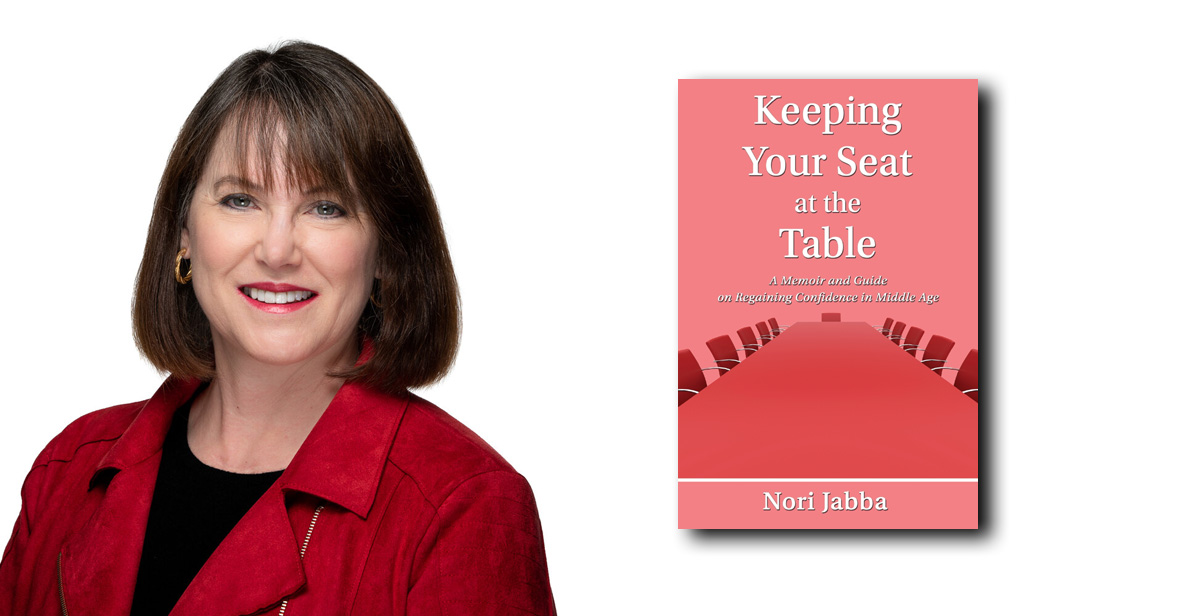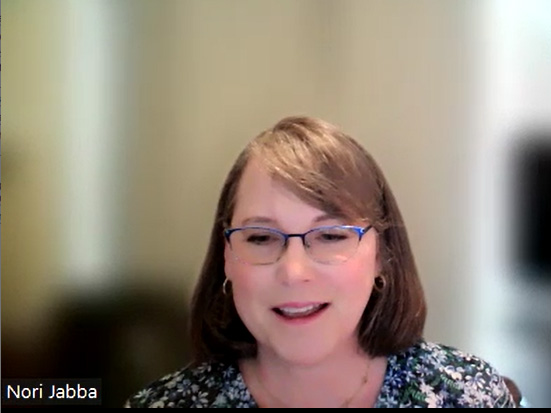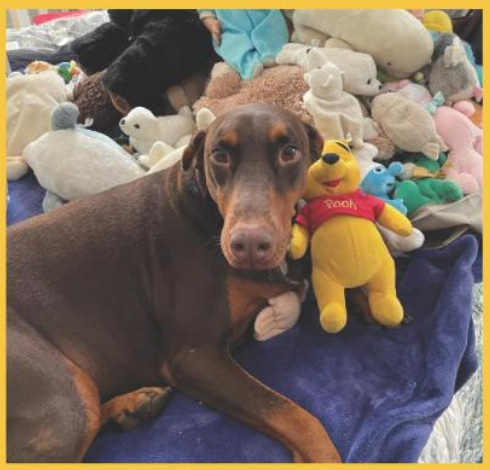Thought Leadership Studio Podcast Episodes:
Keeping Your Seat at the Table - Interview with Author Nori Jabba
Episode 43 - Learn from Nori's transformative journey. What can be said in exactly 100 words? Why is a table a great metaphor? How and why to bring yourself to a story?

#authors, #chatgpt, #insight, #inspiration, #interviews, #leadership, #storytelling, #thoughtleadership, #thoughtleadershipexamples, #writing
Or Click here to listen or subscribe on appWhat this episode will do for you
- Gain insights from Nori Jabba, author of "Keeping Your Seat at the Table," on how to navigate the professional world and maintain your position of influence.
- Learn about the power of summarization and the benefits of using concise 100-word summaries to capture the essence of complex ideas.
- Understand the pivotal events that inspired Nori Jabba to write her book, including her personal journey of overcoming job hunting challenges.
- Explore the metaphor of the table as a central symbol in our lives and its significance in corporate success and personal growth.
Nori Jabba.
Nori Jabba, an experienced professional in corporate real estate and urban planning, embarked on a transformative journey after facing job hunting challenges. Her memoir and guide, Keeping Your Seat at the Table, encapsulates her quest to understand ageism and empower all readers, but in particular mature women in the workforce.
With three decades of expertise and a master's degree in urban and regional planning, Nori offers invaluable insights on navigating the corporate world and reclaiming influence. As she manages housing programs in the Bay Area, Nori's writing continues to inspire others. Discover Nori Jabba's empowering work and unlock the keys to professional success and personal growth.
Some of Nori's coordinates:
Curated Transcript of Interview with Nori Jabba
The following partial transcript is lightly edited for clarity - the full interview is on audio. Click here to listen.
Chris McNeil: I'm Chris McNeil, host of Thought Leadership Studio, and I'm sitting here from coast to coast with Nori Java, the author of Keeping Your Seat at the Table. Welcome, Nori.
 Nori Jabba: Thank you so much for having me, Chris.
Nori Jabba: Thank you so much for having me, Chris.
Chris McNeil: You're welcome. And one thing I noticed about your book that I really liked is that you have a hundred word summary at the beginning of each chapter.
Wisdom and Empowerment in Exactly 100 Words
Nori Jabba: Yes.
Chris McNeil: For those TL;DR types who always feel like they're so busy, it helps them get the gist of it, but what I also found is that they were just the right teases to make you really want to dive in and get the whole story.
But, for our listeners maybe just if you can start with giving us the big picture of what pivotal events happened that inspired you to share your story this way.
 Nori Jabba: Well, so I want to talk about the 100 word summary just for a second first, because it's such a beautiful tool to help you summarize your thoughts in writing. And it's based on the 100 word story, which was started by a friend of mine or he took it to the next level and publishes a book every year of 100 word stories - and you can submit your 100 word stories.
Nori Jabba: Well, so I want to talk about the 100 word summary just for a second first, because it's such a beautiful tool to help you summarize your thoughts in writing. And it's based on the 100 word story, which was started by a friend of mine or he took it to the next level and publishes a book every year of 100 word stories - and you can submit your 100 word stories.
So I just started challenging myself to just to get my words down and my thoughts to 100 words. Exactly. So it's just a really fun way to focus your thinking. And so my journey really started when I decided to go back to work from a consulting position that I'd had for many years. My kids were older, I didn't need that flexibility anymore. I missed being on a team and missed the benefits and stability of working for an employer.
So I started job hunting and you know, I have about 30 years of experience. I'd had over 40 clients consulting. I had won Business Women of the Year for San Mateo County. I had awards in a very professional resume. So I didn't think it would be that hard to land a, a decent job, but no one would hire me, no one. I came in second time and time again. I didn't get a response. I was told I wasn't a good fit. I was told somebody else, met the qualifications more. I was told my salary expectations were high to high and on and on.
And so it started taking a toll on my self-esteem. So I decided to forget job hunting and if they weren't going to, nobody was gonna hire me. I decided I'm gonna start my own company and I'm gonna write a book about this journey.
Because this is ridiculous. So I decided to start a company and joined an incubator program to help me do that. And I'm from Silicon Valley, I have an entrepreneurial spirit. My dad was an entrepreneur, my husband's in startup, so I thought, I've got this, you know, I spent my childhood soldering motherboards for Apple Computer on a garage floor when Apple was just beginning in wow, the late seventies and eighties and testing integrated circuits and swapping out integrated circuits on motherboards. You know, I was a Silicon Valley, a real valley girl.
Chris McNeil: You're a techie.
Nori Jabba: (laugh), not really, but you know, you grow up in this area and you get into it. So I thought I could start this company and through the incubator program, which was called Bliss Champions and started by a friend of mine, I, we spent a lot of time working on passion and purpose.
And Eric, the leader of that group, wanted to really make sure we had what it takes to make this come true, because it's a ton of work, right? So in that process, I realized that I don't really want to start a company. Yes, it'd be fun, but my true purpose is writing and sharing my stories with others. So it was through that program that I tabled my concept for the company, no pun intended. Well actually it is. And focused on writing and sharing my story.
 And I came up with the table concept at a leadership conference for women and somebody was talking about keeping your seat at the table. And I just started brainstorming and thinking about the nuggets of information she had provided to us. And I came up with these fun plays and word on the table and I just thought it would be so perfect for a book.
And I came up with the table concept at a leadership conference for women and somebody was talking about keeping your seat at the table. And I just started brainstorming and thinking about the nuggets of information she had provided to us. And I came up with these fun plays and word on the table and I just thought it would be so perfect for a book.
And then I started thinking about the table and the definition and how it's absolutely is essential to the human condition. It is, it is where we eat, we drink, we fall in love, we work, we have tough conversations, we make decisions, we create, we do so much of our life, right? And so to, to just have it focused on our corporate success, I realized I needed to think of it in a much bigger way.
And it's also, it's such a versatile word, you know, it's a noun, it's a verb, and don't, it's getting pulled under the table is one of my chapters. You know, you can have a table of contents, it's a table you sit at, but you can table something for later. you can be paid under the table. You know, it's just got so many meanings in our culture.
Flipping the Table Over
So through my journey, I realized that it really is necessary to flip the table over and build your own instead of the traditional view of the table is just a bunch of traditionally white men sitting at a table. You work for years, blood, sweat, and tears, and you're finally invited to have a seat. So in my book, I show you how to create your own table and invite people that support you, that challenge you, that hold you accountable to share on your journey and support each other.
Chris McNeil: That's awesome. I'm getting a lot of things from this, Nori, and a few of them that I think are worth examining a little more deeply are the power of metaphor in general, but in particular the way you've used metaphor with the table for all its explanatory value ... But also pulling something out to examine that is such a ubiquitous part of our culture, of our shared reality as human beings that we don't even necessarily think about a day to day.
How much time do we spend at a table? Right? And then you have board of directors table, you've got the kitchen table, the little dining room table I share breakfast with my wife and our dog who steals food off of it.
 Nori Jabba: And I need to have a, a full disclosure here. My doberman is right next to me and it's garbage day. And she goes crazy when she hears rolling carts. So if if she barks, I apologize. It's really hard to stop her.
Nori Jabba: And I need to have a, a full disclosure here. My doberman is right next to me and it's garbage day. And she goes crazy when she hears rolling carts. So if if she barks, I apologize. It's really hard to stop her.
Chris McNeil: Don't apologize. Rocket, my dog will probably make a visit at some point. And I love dogs. So your, your dog's input is welcome.
Nori Jabba: Okay. Thank you. But yes, the table is an every culture in the world and it is so central to everything that we do. And it's also exceptionally central to women's lives. You know, traditionally the woman in the kitchen and all of that.
And you know, now, now societies share in that and we're all in the kitchen together. But, you know, when you think about it, when we have parties, we're around the table, we're in the kitchen, you know, we just, yeah. So I really want to kind grab back the table for women to, you know, this is our table, you know?
Chris McNeil: Right.
Nori Jabba: It's really important to include everybody at the table. And even though my book is focused on women in middle age, 40 to 60, roughly, it is so valuable for men to be part of the journey. And it's absolutely a celebration of those men who have a seat at the table with me that have been on the journey with me, that have supported me. I've dedicated the book to a man that's my dad. you know, men so important at the table for women. Absolutely.
Chris McNeil: Yeah. I really related to your intro, talking about your dad. I lost my father just a few years ago.
Nori Jabba: And he died while I was writing the book. And he was such a supporter of, of my journey and, and getting this to Grant and he'd be so proud of me today for, for getting to this point. So, you know, he was a wonderful man and a great influence on me.
Chris McNeil: Well, that's awesome. And something else you brought up - I think it'd be helpful for the, our listeners to examine a little bit - is the discipline of the hundred word summary. And it also, it makes me think of a couple of things. Okay. One is how, how much value I found in writing myself as well in being able to better articulate a concept or a vision by having to put it into words and organize those words and to models or find metaphors that adequately convey something that might seem hard to read with words to start with ... That it clarifies thinking to me.
Nori Jabba: Yes.
AI like ChatGPT and Writing
Chris McNeil: And how much also my thoughts about AI now in a lot of people using tools like ChatGPT to write for them. And I think if we're not careful about how we use it, we could lose something - as thought leaders or practitioners of thought leadership or those who just want to influence others in a positive way - of the value of having to articulate things in writing and the clarification that brings to our own thinking. What are your thoughts on those?
Nori Jabba: So, you know, AI is such a blessing and a curse, right? But I think we all need to think of ourselves almost like machine learners, right? So AI learns on its own and then takes that to the next level. And a chapter in my book about relevance is doing just that, taking yourself to the next level, thinking of yourself almost like a, a sponge and having to absorb and what can you get out of that?
And I'll give you a little example every from my job years ago I had to go to four to five evening events a week and multiple lunches. And people would get tired of these things and would see each other at these things all the time. And you know, somebody would say, you know, another keynote and be on their phone the whole time. I tried to get at least one nugget takeaway from every, every keynote, even if it was boring or every speaker, and just get some value out of it and take that and learn from it.
And honestly, that's how I came up with the table concept in the book was doing just that. But if we can think of ourselves as, as AI masters and learn from ourselves and grow from every input, I think that is the key. And I don't know if the AI could master the 100th word story, you know, that would be a really fun experiment to see what they come up with. A machine comes up with for 100 words, but it is really hard to get exactly 100 words. And I don't mean 98 words or less than a hundred, I mean exactly 100.
So it's a wonderful tool. And when my kids were in high school, they would end college, they would have assignments where you had to maximum 2,500 words or 1000 words or 750 words. And so they would write their draft and they would say, mom, can you help me cut my words? And we would sit on Google, Google Docs together and I'd make suggestions and Cut here, cut there. And we started having fun with it. And we would, our challenge was to get the essay to exactly the maximum. Exactly.
Chris McNeil: Oh, that's cool. (laugh).
Nori Jabba: And so I've been doing this for a while. And then my friend grant, friend Grant Faulkner, who runs 100 word story, and that website is 100 word story.org. you know, he's a master of this and it's all about brevity. he also wrote the book The Art of Brevity and thinking about what is a story and taking a sentence is this sentence a story.
And so you can really pack a punch in 100 words. And, you know, it's that, it's that saying that has been credited to so many people. I'm so sorry, I wrote a long letter, I didn't have time to write a short one. So, with AI ...
Chris McNeil: That's a twist.
 Nori Jabba: Yeah. I think it's gonna be a challenge in the future.
Nori Jabba: Yeah. I think it's gonna be a challenge in the future.
The Table in Your Heart
I don't think there's any way to replace the table in your heart. You know, AI can look at something, but they don't have all of the inputs that we have as human beings.
And if you think of every process as if you're writing, for example, being around the table and, and having that support network to help you write this wonderful message that you're trying to get out, you're gonna bring all these aspects of your personal life to whatever you write.
Whether it's corporate white paper or a report for a board of directors. You're bringing your personality to your writing. And I hope my personality comes through in my writing. I think it does. But there's no way that AI can bring up a reference from when I was 10 years old because AI can't do that. Right. Unless that reference is in the system.
So I hope that people will reflect on that and think about using that tool of 100 words to really just make a concrete bot even more concrete and clear and really get your point across. And I just can't imagine that a machine would be able to do that successfully.
A Container for Art
Chris McNeil: Well there's a couple things that makes me think of - it is like the artist who is limited by the paint, the canvas, the a hundred words gives you strict limits. And art really lives within limits. If there are no boundaries, it'd be hard to have a container to convey the art through. And maybe there's a value to the tightness of the container. I mean, I'm a musician. We have a 12 note musical chromatic scale and the western world, and those 12 notes can be organized to convey so many things.
Nori Jabba: Right? Right.
Chris McNeil: And so, and writing ...
Nori Jabba: ... Really is music, honestly. It really is. I see them as very, very similar.
Chris McNeil: I think. So, I mean, they're both art forms and I've wondered about the usefulness of even the term "artificial intelligence" because it implies it can take the place of human intelligence. I like "extended intelligence" as a better term ... Because it's a quicker way to get answers - I'm discovering - than using search engines that are often polluted with people who've learned to game the search engines rather than deliver really good value in some cases.
Nori Jabba: Right, exactly.
Chris McNeil: But the AI can't visualize it, it can't think in all the senses like we can and access a memory of a visual image and pull something out that it can emulate, though it can make it seem like it does to some.
Nori Jabba:Right.
Chris McNeil: You spoke of "Does this sentence make a story" and you're a master storyteller. What does make a good story to you? And I'm trying to pull out something that is not just about your accomplishments, which are awesome, but, and the story you tell, but also your personal way of creating that story.
Nori Jabba: Well, you've really got to bring yourself to the story. And that's the bottom line. I mean, they say that great speakers, if you watch a Ted talk, they're connecting with you. So that's what it's all about, is connecting with the audience ... being vulnerable. You know, Renee Brown, I referenced her in the book and she really turned my life around with vulnerability and I now see it as a complete strength.
And that's what my book is. I mean, the whole journey is sharing, being vulnerable, and sharing what happened to me when I couldn't get a job. And even so people saw me as this great success and they had no idea I was going through this. Last night, I held my book launch party and a lot of people were there and my supporters that just had no clue how hard this was.
And it really resonated because so many people that were there with me are feeling the same way. So yes you have to bring yourself, your journey. and be vulnerable and share yourself in order to connect with your audience. There really is no other way to do it. You know, you can ask questions, but you've got to share yourself.
Chris McNeil: Well, I'm noticing that a lot of the story and how you came up with your story, what inspired it, has elements of the hero's journey.
Nori Jabba: Yes, for sure.
Chris McNeil: The challenge and, and how thatappears to me, and correct me if I'm wrong, triggered you to look within yourself, find new ways of thinking, new metaphors that ended up having value to others so you could share that with them.
If life had just been smooth and you automatically gotten the job you wanted, you wouldn't have had this period of ... would you call it self-examination?
Nori Jabba: Yes. So I'll give you an example. So when I decided to focus on the book, I reached out to one of the HR hiring managers or director of HR at one of the companies that told me, I came in second, thank you very much, and told her, "I'm writing a book, would you mind having coffee with me? And I want to talk about why it's so hard for women my age to get a job." And she said yes.
60 Miles for Coffee
 So I drove 60 miles to have coffee with her, and honestly, it would be a 60 mile commute one way if I'd gotten that job. So things worked out for a reason, right? Sure. She would've done me in. But we had a wonderful conversation and she had never been asked this question before and she completely unloaded on me so much information, and I'll just share a couple of things that she said.
So I drove 60 miles to have coffee with her, and honestly, it would be a 60 mile commute one way if I'd gotten that job. So things worked out for a reason, right? Sure. She would've done me in. But we had a wonderful conversation and she had never been asked this question before and she completely unloaded on me so much information, and I'll just share a couple of things that she said.
One was that she said that women my age don't listen. And I, I was pissed off when she said that I didn't want to listen. And it struck me as we were talking that I was doing exactly what she said, women my age do by trying not to listen to her. So I just sat up in my chair and I realized, oh my God, maybe she's right. So I really listened to her and I really became a better listener because of this journey, but listening.
And the other thing she said that was so important and really changed my whole life when it comes to my work, is she said that women of a certain age tend to be dismissive of younger workers, both men and women. And I really thought about that because I never saw myself as dismissive, but, and she wasn't necessarily talking about me, but I I really took that to heart and started embracing younger workers and younger people in my life.
And I am proud to say that now, and by the way, I did get my seat back at the table through this journey, and I got a great job as well. So the journey, the seat at the table isn't necessarily about my job and my purpose isn't necessarily about my job, but my boss is decades younger than me. She could be my daughter. And she asked me in our final interview, is this gonna be weird? Are you okay with this having somebody so much younger than you, your supervisor? And I said, no, I think it's fantastic. I am so excited about it because I have so much to learn from you. And I don't think my head would've been able to accept that before
I had the conversation with that HR director who really planted that seed in me. And so it really, I, I had a complete pivot, and I really think that's a big part of why I got my seat back at the table was being able to embrace younger minds and younger thoughts. And I mean, the old me would've said, you know, I'm, how can I have a boss that much younger than me now? I I love it. I absolutely love it. And she is so smart and so fantastic and such a great boss, and we support each other.
Chris McNeil: I love that. And I, I really like how you're speaking to the value of learning, lifelong learning and openness. And I don't mean learning by just in just gathering more knowledge, but learning and being willing to, to be vulnerable, like you say, to examine our own belief systems.
Nori Jabba: Yes.
Chris McNeil: And be open to those being challenged, because that's, to me, a higher level of learning, a higher level of growth than just acquiring more knowledge.
Nori Jabba: Right?
***************************************
The transcript is lightly edited for clarity and is a partial transcript- the full interview is on audio. Click here to listen.
***************************************
Free Stuff and Offers Mentioned in Podcast
***************************************
***************************************

Are you tired of your company's online presence falling short of your expectations? Look no further than 5th Level Web - the privacy-centric web development and internet marketing company that respects your prospects and makes the internet turn-key for companies with $5-$100M in annual sales.
5th Level Web is for market leaders. We make sure your web presence reinforces and supports your leadership without the need for privacy-invasive targeting.
At 5th Level Web, we have high-level tech experts on hand to ensure quick response times and top-notch service. Our team will work with you to create a compelling message and web presence that sets you apart from the competition, establishing or reinforcing your company as a market leader.
Click Here to schedule your free offer as a listener/reader of Thought Leadership Studio: a Free Web Analysis and Consultation.
***************************************